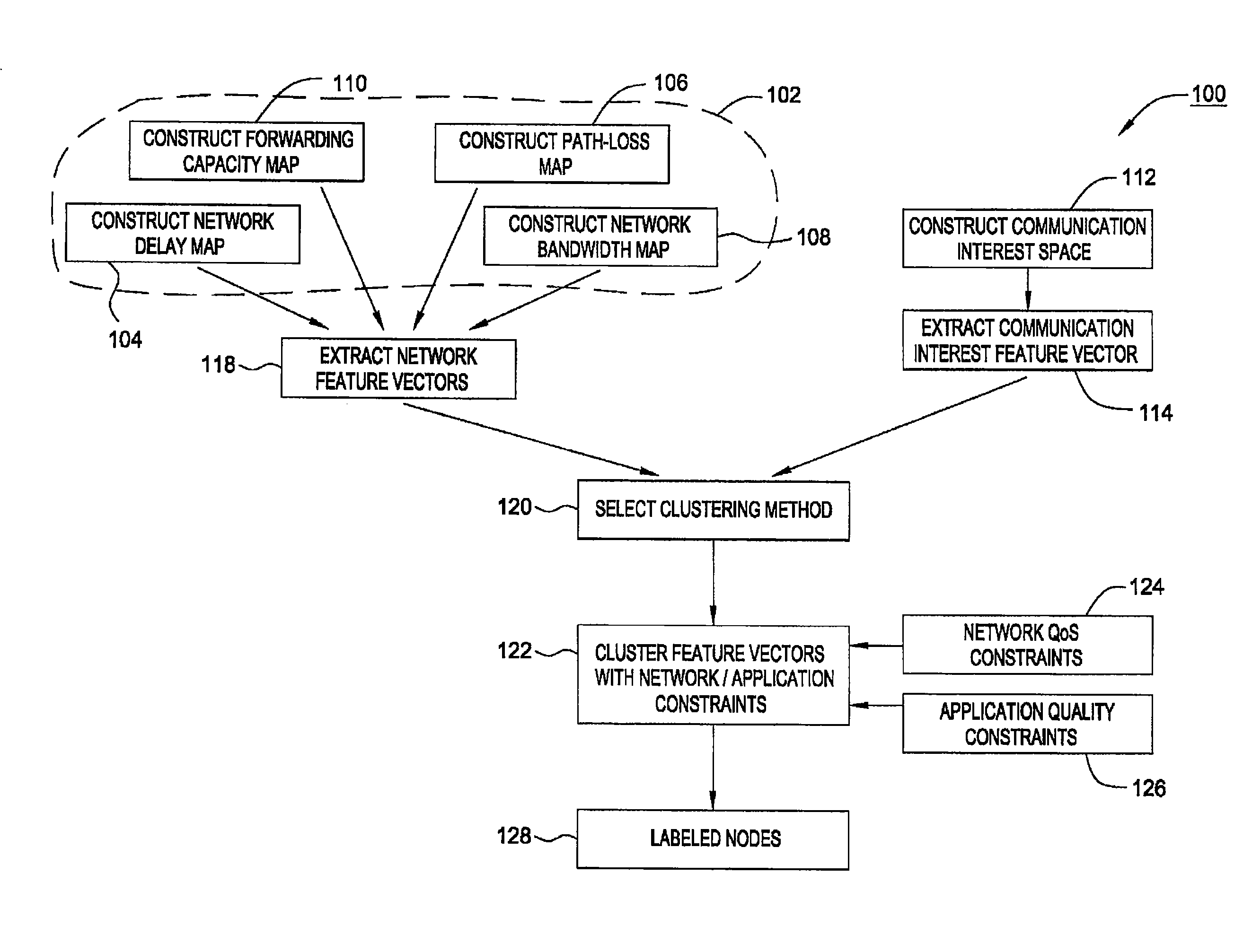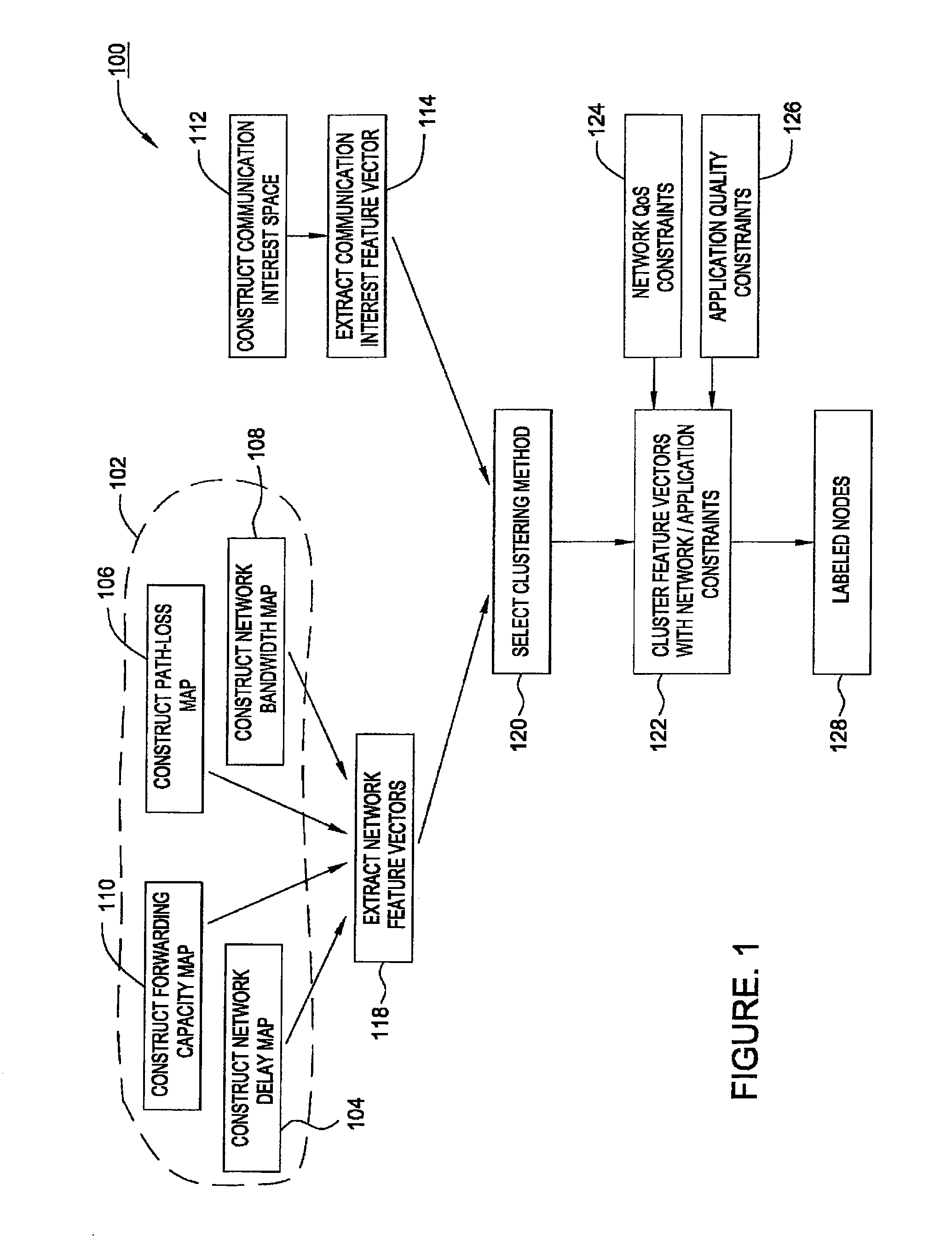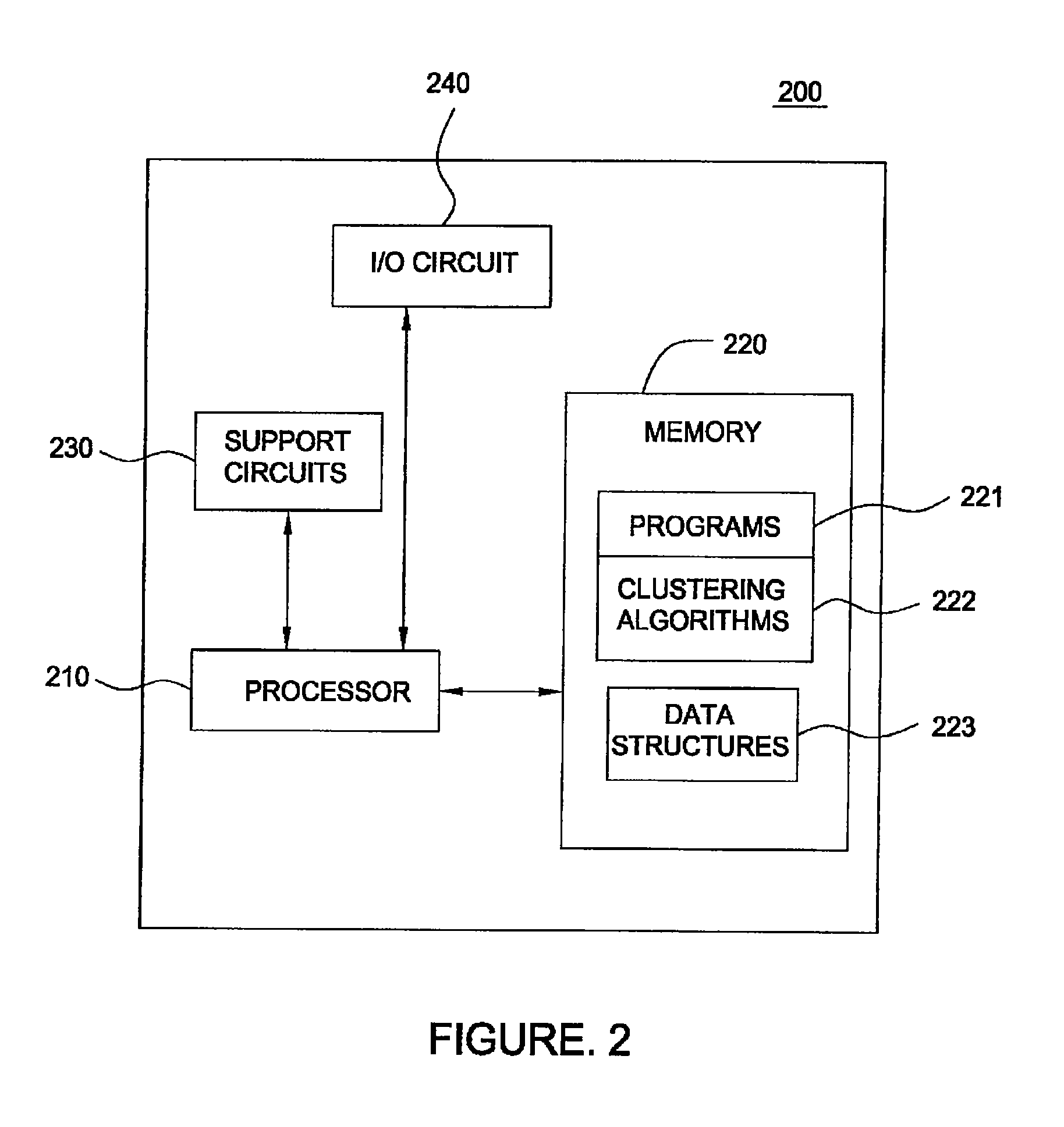Method and apparatus to support application and network awareness of collaborative applications using multi-attribute clustering
a technology of multi-attributes and clustering, applied in the field of group communication, can solve problems such as the inability to support collaborative applications with multi-attributes, the difficulty of effective communication management implementation, and the inability to optimally cluster applications
- Summary
- Abstract
- Description
- Claims
- Application Information
AI Technical Summary
Benefits of technology
Problems solved by technology
Method used
Image
Examples
Embodiment Construction
[0019]The present invention models a communication network using multi-attribute feature vectors, one for each node of an overlay network. Each vector represents its node as a point in a multi-type attribute space that spans network and system attributes and communication interest attributes. The nodes are then clustered into sets based on their multi-attribute feature vectors.
[0020]Network and system attributes include network delay attributes that are represented as either network delay position attributes (nodes positioned in an N-dimensional network delay space) or as relative network delay attributes indexed in a network distance map containing the delay distances obtained from round trip time (RTT) measurements between selected pairs of overlay nodes. Network and system attributes also include: network bandwidth attributes that represent the available network bandwidth between pairs of overlay nodes that are indexed in a network capacity map, network loss attributes that repre...
PUM
 Login to View More
Login to View More Abstract
Description
Claims
Application Information
 Login to View More
Login to View More - R&D
- Intellectual Property
- Life Sciences
- Materials
- Tech Scout
- Unparalleled Data Quality
- Higher Quality Content
- 60% Fewer Hallucinations
Browse by: Latest US Patents, China's latest patents, Technical Efficacy Thesaurus, Application Domain, Technology Topic, Popular Technical Reports.
© 2025 PatSnap. All rights reserved.Legal|Privacy policy|Modern Slavery Act Transparency Statement|Sitemap|About US| Contact US: help@patsnap.com



